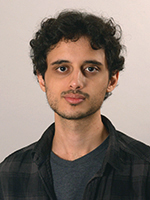I am a PhD candidate in Philosophy at the University of Oslo under the supervision of Joey Pollock and co-supervision of Catarina Dutilh-Novaes.
My research project, Power and deep disagreement: communication beyond argumentation, is part of the New Models of Knowledge Communication project, funded by the Research Council of Norway.
My CV is available here.
Research summary
Power structures are present in all social interactions, and a particularly widespread and complex expression of them is structural oppression. Accounts of deep disagreements should not be exempt from considering how power differentials and structural oppression affect the phenomena. This is especially concerning when it comes to political deep disagreements, which may cause non-recognition and distrust or be a consequence of it. My assessment is that a reconceptualization of deep disagreement as a complex multi-dimensional phenomenon is due. Therefore, I propose a characterization of deep disagreement which highlights its interconnected cognitive and non-cognitive dimensions. This allows for going beyond epistemic attitudes and argumentative practices towards recognizing the role of attention, salience, perspectives, and values. One of the main benefits of this move is being able to use the concept of deep disagreement more adequately to account for actual political conflicts. Identifying and understanding the challenges brought to the surface by them prompts the search for more adequate theories of argumentation. Following recent contributions from the social epistemology of argumentation and my reconceptualization of deep disagreement, I propose a model of deep disagreement that updates the conditions for argument and also accounts for extra- and non-argumentative forms of communication.
Areas of research
Areas of Specialization:
Social & Political Epistemology • Philosophy of Language • Philosophy of Mind
Areas of Competence:
Social & Political Philosophy • Argumentation Theory • Philosophy of Education
Academic background
I have a BA and MA in Philosophy from the Federal University of Pernambuco (UFPE, Brazil). My master's thesis investigated to what extent there was a defense of a type of foundationalism Wittgenstein's On Certainty. I argued for an anti-foundationalist reading through an analysis of the twelve key metaphors from the book.
